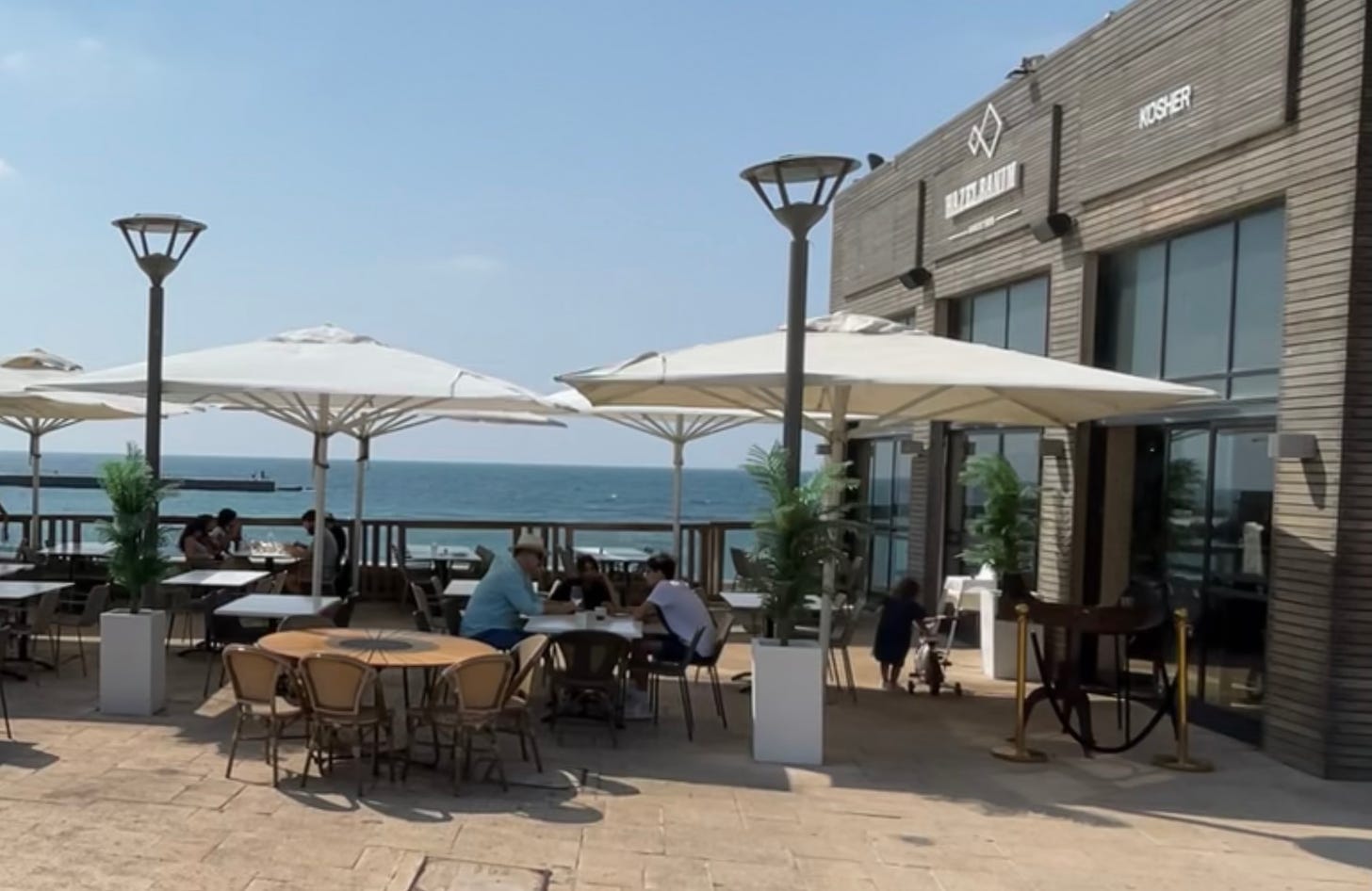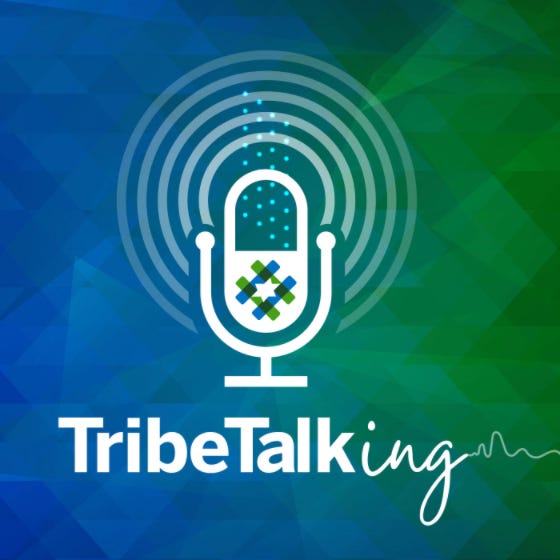The five most important things that have happened to the Jewish people in the past half century
This question stumped me, so I thought we'd crowd-source it
I’d planned to write today about the kerfuffle between Israel and Poland currently unfolding, with Foreign Minister (and Prime Minister in the “on deck circle”) Yair Lapid having essentially downgraded diplomatic relations between the two countries. I’ve spoken to a few leading Israeli authorities on Poland who believe that Lapid is wrong, and that Israel is making far too big a deal out of the new restitution law, but we’ll come back to that in coming weeks, along with a podcast on the subject with David Bernstein, one of the very finest guides of Jewish life in Poland.
Today, given that Rosh Hashanah is nigh upon us, I wanted to share a question that a friend asked me, that I couldn’t answer, and that I hope we can crowd-source in preparation for what could be fascinating conversations to have with our families over the coming holidays if we’re observing them, and regular old conversations if we’re not.
He and I were sitting at the restaurant pictured above in Caesarea a few days ago, having lunch in the ruins of the Crusader fortress that is now a national park, overlooking the Mediterranean, when he asked me this:
What do you think are the five most important things that have happened to the Jewish people in your lifetime?
I would have guessed that I would have had to whittle down a long list of candidates as answers to that question, but in truth, I was stumped. Off the top of my head, I listed the following (not in order of importance, just the order in which they came to mind):
FIRST, I said, I’d include the 1967 Six Day War and the 1973 Yom Kippur War, since Israel’s victories in those wars were so overwhelming (despite the horrific opening days of the latter) that since then, no standing army has ever again attacked Israel. Despite Iran’s saber-rattling in the distance, those wars ended existential threats to the Jewish state.
SECOND, I pointed to what I’ll call the Sefaria phenomenon, the availability of Jewish texts and online learning that is now ubiquitous. There’s Sefaria, of course, but also the 929 project, dozens of daf yomi (study of a daily page of Talmud) websites … serious Jewish learning has been democratized in a way that it has never been before.
THIRD, I listed the changed and dramatically improved status of women in the Jewish world. It’s far from complete, but the progress has been astounding in the past half century. When we were growing up, there were no places for women to study Talmud; today’s world is entirely different. When we were growing up, the Conservative movement did not ordain woman, while today, even some parts of Orthodoxy do. Women are found in leadership roles of all sorts throughout the Jewish world, and despite the work that still cries for attention (agunot, for example), things are much better.
FOURTH, I came up with immigration to Israel. What started out as a largely white, European, Ashkenazi (and yes, elitist) project, has over the years, absorbed hundreds of thousands of Mizrachi Jews from the Levant, a million people from the former Soviet Union, Ethiopian Jews and more — utterly changing the face of the Jewish State and our image of what a Jew is, and radically changing the power base of Israeli life. To be sure, heartbreakingly far from perfect, but critically important nonetheless.
BUT THEN, I got stumped. My friend suggested the phenomenon of mass assimilation, but I wanted to stick to positive things. And even if not, would that make the cut? I wasn’t sure.
So let’s talk about this together. Comments are open for this posting … share your ideas, and in a future column, I’ll list some of the most interesting and compelling answers people suggested. What do you think are the five most important things that have happened to the Jewish people in the past half century?
Does Israel’s Declaration of Independence really open with a lie?
Many scholars and observers claim that it does. The opening words of the Declaration are now quite well-known:
In the Land of Israel, the Jewish people was born. Here their spiritual, religious and political identity was shaped. Here they first attained to statehood, created cultural values of national and universal significance and gave to the world the eternal Book of Books.
If the Book of Books (i.e., the Bible) is so important that it merits mention in the Declaration’s opening sentences, why make a claim that explicitly contradicts the Bible’s history of the Jewish people? After all, the Bible states quite clearly that the Jewish people was not born in the Land of Israel.
The first time that Abraham’s family is called a people, they are in Egypt: Pharaoh says, “Look, the people of the sons of Israel is more numerous and vaster than we. Come, let us be shrewd with them lest they multiply” (Exodus 1:8-10). A few chapters later, it’s God who speaks: “I will take you out from under the burdens of Egypt and I will rescue you from their bondage…. And I will take you to Me as a people and I will be your God” (Exodus 6:6-7). Here, too, they’re in Egypt, not Israel. There are other examples, too.1
So what was David Ben-Gurion doing? Why open the Declaration with a purposeful mischaracterization of what the Bible says?
(Most of these DoI segments will be for subscribers, but this one’s for everyone.)
Or maybe he didn’t. It is the next phrase in the Declaration, “Here they first attained to statehood,” that may enable us to explain Ben-Gurion’s apparent tweak of biblical history.
“Here they first attained to statehood” is how almost everyone translates the Hebrew, bah chai chayei komemiyut mamlachtit, which is essentially untranslatable. Why does the Hebrew matter here? Note that first letters of the word komemiyut are almost identical to the word kam in the Declaration’s first sentence, which we translated as “born.” Komemiyut is a very unusual Hebrew word, found, not surprisingly, in the Bible: (Some readers will also recognize it from the Grace After Meals — veyolicheinu komemiyut le-artzeinu”). “
I am the Lord your God Who brought you out of the land of Egypt, from your being slaves to them, and I broke the bars of your yoke and made you walk komemiyut” – “upright.”2
It was Ben-Gurion who added that word komemiyut to the draft. A lifelong student of the Bible, he knew very well what he was doing. When he wrote that the Jewish people was “born” [kam] in the Land of Israel, he may well have seen no contradiction between that claim and those other verses we cited. For he would have said that merely surviving in Egypt did not constitute genuine peoplehood. Meandering in the desert is not what peoplehood is meant to be. Being across the river, not yet in their promised land and still desperate for God’s protection, is not peoplehood.
Peoplehood, believed Ben-Gurion, requires independence. Kam and komemiyut are thus in dialogue. When Ben-Gurion’s text claimed that it was in the Land of Israel that the Jewish people was born, what he was saying was that it was “here” that they were first sovereign, here that they first walked “upright,” here that they lived the only form of Jewish life worth anything. Given his worldview, the first sentence is anything but a fudge. It is entirely accurate, if one accepts his view of what Jewish peoplehood meant.
The claim that genuine Jewish peoplehood requires political sovereignty carries with it, to be sure, a not-too-subtle dig at Diaspora Jews, implying that non-sovereign Jewish life is inferior. Ben-Gurion made no bones about that, a subject that merits much discussion and about which many people strongly disagree. For now, though, did the Declaration “lie” when it says that the Jewish people was “born” in the Land of Israel?
Depends what you mean by “born.”
Israel as Villain: How that image emerged in America and why — A Conversation with Matti Friedman
Matti Friedman is one of the Jewish world's most talented and creative journalists, authors and film-makers. The author of The Aleppo Codex: In Pursuit of One of the World's Most Coveted, Sacred, and Mysterious Books; Pumpkinflowers: A Soldier's Story of a Forgotten War - an account of the Lebanon War through the eyes of his own service there; and Spies of No Country: Israel's Secret Agents at the Birth of the Mossad, he has also created a superb three-part docuseries (unfortunately, no subtitles yet) on the Lebanon War for Kan, one of Israel's leading TV outlets.
Friedman recently published a fascinating article in the Atlantic called Israel’s Problems Are Not Like America’s, in which he argued that Americans (Jewish and not) tend to see and understand Israel through the prism of America’s challenges, like that of race. That, says Friedman, inevitably leads to a misunderstanding of Israel, and it is to that mistake that he traces some of the negativity with which Israel is portrayed in the press and in the US.
We spoke with Friedman about his Atlantic article, and tied his thoughts to Rosh Hashanah, in this period of introspection and framing our hopes and prayers for the future. We’re making this excerpt of our conversation available here to everyone. The entire podcast, which will be available to subscribers to Israel from the Inside, will be posted on Wednesday.
Do you know a high school or college student whom you wished knew Israel’s history? Or anyone, for that matter…
While not part of my podcast series, last summer I recorded a series of podcasts for Tribe Talk, covering the history of Israel in twenty-two brief episodes. They’re online, available here to all, thanks to the creators of Tribe Talk.
Our twitter feed is here; feel free to join there, too.
Still later, God speaks again: “And as for you, you will become for Me a kingdom of priests and a holy nation” (Exodus 19:6). Towards the very end of the Torah, as the Israelites are encamped in the deserts of Moab on the eastern side of the Jordan river, it is Moses who speaks: “Be still and listen, Israel. This day you have become a people to the Lord your God” (Deut. 27:9).
Leviticus 26:13.








Posting on behalf of Sheldon: Past 50 or in my lifetime?
I was born in 1935 so without doubt the founding of Israel would be on my list. I agree with the expansion of Jewish learning, and the 1967 and 1973 wars. I would add the development of Israel as a tech center. Unsure of number five.
Posting on behalf of Calvin:
The recent increase in antisemitic acts in many parts of the world is disquieting. This is a significant negative development
On the positive side, Israel has developed diplomatic relations with many Arab Sunni countries and other countries in Africa.